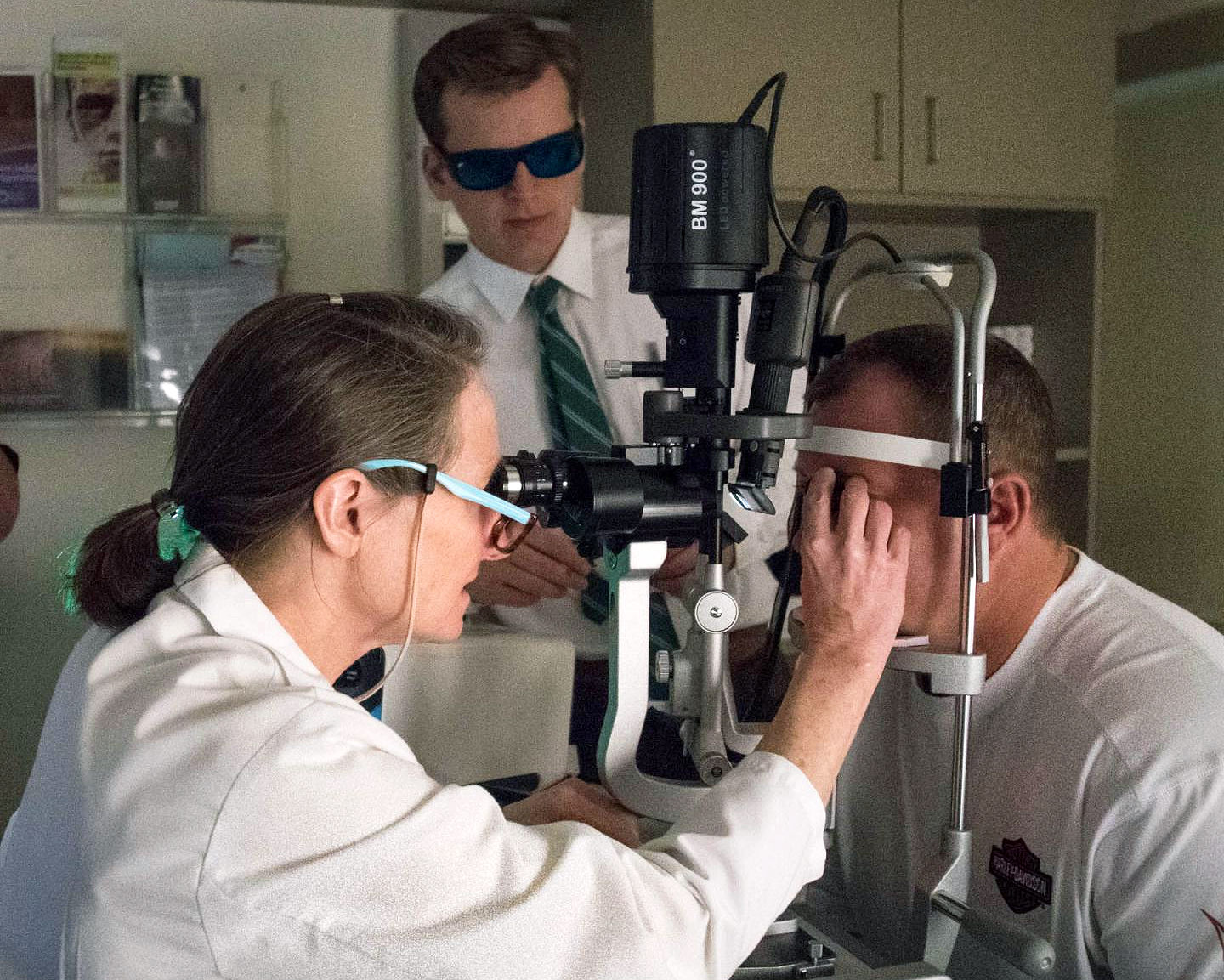A new class of treatment that can selectively destroy cancer cells using a light-activated viral nanoparticle has received FDA fast track designation for the treatment of ocular melanoma.
Aura Biosciences also today announced it has enrolled and dosed the first patient with the light-activated treatment, AU-011, in a phase 1b clinical trial.
“Patients with ocular melanoma currently have few treatment options available that can effectively destroy tumor cells while still preserving vision. Aura’s trial is an important step in understanding the potential of AU-011 as a safe and novel therapeutic option to improve the outlook for these patients,” said Carol Shields, MD, co-director of the Ocular Oncology Service at Wills Eye Hospital, where the first patient was dosed.
Dr. Shields’ work with AU-011 builds on years of pioneering research in early diagnosis of ocular melanoma using clinically relevant risk factors for timely recognition and treatment.
AU-011 consists of synthetic virus nanoparticles modeled on the human papilloma virus conjugated to small, infrared light-absorbing molecules that bind selectively to cancer cells in the eye.
After intravitreal administration, the treatment is activated with an ophthalmic laser, causing the excited conjugated molecules to destroy the membranes of AU-011-bound cancer cells, killing them without harming surrounding ocular tissue, and potentially preserving patients’ vision.
“With the advancement of AU-011, we are opening the door for innovation in a completely new therapeutic area where there are no FDA drugs approved today,” said Elisabet de los Pinos, PhD, founder and CEO of Aura. “Our hope is that AU-011 could be used to treat small primary melanomas early, with the potential to eliminate the tumor and preserve vision for patients.”
With no targeted therapies available to treat this aggressive cancer, typical treatment options include localized radiation therapy, which often leads to cataracts and loss of vision, or enucleation. Approximately 50% of patients will eventually develop metastatic disease, which is fatal in 85% of cases after 5 years.
Investigators aim to enroll up to 12 treatment-naïve adult patients with confirmed small to medium primary tumors. Patients will be treated with AU-011 at 1 of 2 dose levels and followed for 2 years.
 Dr. Carol L. Shields examines patient at Wills Eye Hospital
Dr. Carol L. Shields examines patient at Wills Eye Hospital